On the awarding of the Nobel Peace Prize to Narges Mohammadi.
Our compassion is called for. It is the least we can give to people suffering around the world for something we enjoy in relative safety and as a matter of course: our lives in freedom.
The award of the Nobel Peace Prize to the Iranian human rights activist Narges Mohammadi is a symbol, but it is no more than that. Liz Throssell, the spokesperson for the UN High Commission, calls Iran’s women an “inspiration for the world”. In order for what is meant by this statement to become true and for it to be possible to become true, we must not be afraid to look at the reality of an ideal. Nonviolent resistance is a struggle for peace—this paradox currently concerns every soul on earth.
Narges Mohammadi says of herself that she cannot choose another life; she has to fight—”otherwise I am not a proper human being”. Each person must decide for themselves and their lives what that means—in hers, we know the unimaginable consequences that she bears for it.
She was born in Iran, in the city of Zanjan, on April 21, 1972. As early as during her studies in physics, she took part in student political protests and wrote articles in support of women’s rights. After graduating as an engineer, she was banned from working. From then on, she worked as a journalist for reformist newspapers. In 1990, shortly after marrying the reformer and journalist Taghi Rahmani, she was arrested for the first time. To this day, for 33 years, her life has proceeded in a spiral of incessantly inflicted violence without the mullahs’ regime succeeding in breaking her will. Short periods of freedom alternate with charges and show trials in which she is regularly sentenced to several years in prison and hundreds of lashes.
In 2012, her husband, who was also imprisoned for a total of 14 years, went into exile in France with their two children. Since that time, Narges Mohammadi has not seen her twins Ali and Kiana, born in 2006; she remained in Iran to continue her work. Narges Mohammadi is the second Iranian woman to receive the Nobel Peace Prize. Twenty years ago, in 2003, her great role model, the lawyer Shirin Ebadi, whose Centre for the Defence of Human Rights Mohammadi joined at that time, was honoured with this highest award. These women go through unspeakable torment without losing their courage, their fighting spirit, and their integrity.
In interviews and videos, we can only marvel at their attitude. No pathos, only ethos. No bitterness, but warmth. Courage that is obviously fed by love. “The more they lock us up, the more resilient we become.” At 51, Narges Mohammadi has spent more than three decades in the resistance, suffering life-threatening injuries and illnesses. In 2013, she was finally transferred to a hospital with epilepsy, but before treatment was completed, she was arrested again. In October 2015, her imprisonment was interrupted by a stroke before she was sentenced to ten years in prison again in 2016. In the same year, she received the Human Rights Prize of the City of Weimar; since 1995, it has been awarded annually on December 10, Human Rights Day, as designated by the United Nations.
Now, she remains incarcerated in the notorious Evin maximum security prison in Tehran, where she shares a cell with Mariam Claren, a German citizen. One year has passed since the day Jina Masha Amini died, and the uprisings began with her murder. Currently, another 16-year-old girl is in a coma after being arrested in the metro by the so-called morality police. [As of publication, she too has died.]
In late 2022, Narges Mohammadi managed to forward a report on the torture and ill-treatment of the women detained in Evin prison to the BBC—it was broadcast on December 24. Narges Mohammadi states: “I will never stop fighting for the establishment of democracy, freedom, and equality.”
And what are we [in Switzerland] doing? To date, there is no national human rights institution in Switzerland. A pilot project that started in 2011 does not meet the requirements that were adopted as the Paris Principles by the UN Human Rights Council. Although the Swiss parliament decided to create a national human rights institution in 2021, there is currently official regret that there is insufficient basic funding. What an absurdity! In Germany, in addition to a national institute, there is the IGFM—the International Society for Human Rights. It writes on its website: “Mail to political prisoners is often an effective protection against abuse, because mail shows prison staff and authorities that a prisoner is known abroad.” This is followed by the address for letters:
To Ms Narges Mohammadi
Shahr-e Rey Prison
Tehran-Varamin Highway, Gharchak
Islamic Republic of Iran
What we can do besides writing and reading—for example, the current book by Narges Mohammadi: White Torture. Interviews with Iranian Women Prisoners (Oneworld Publications, London 2023)—is that we can think. We can think about what we owe to the people who stand up for a future for humanity, and thus, for us, under such circumstances. This is more than empathy; this is also the will to be engaged. We owe it to them that love of action should live in us.
Anyone who might be thinking of resignation in the current world situation, or even of capitulating in the personal struggle for a common humanity, can be inspired by the imprisoned bearers of peace and the courage of many people in Iran who take to the streets and give their lives for the freedom of women. While it may not be possible in the external world, we can join inwardly, telling ourselves, non-violently and courageously and with heartfelt commitment: there is no question of giving up the fight for the future of the earth. It is a fact of the heart.
Translation Christian von Arnim
Image Narges Mohammadi, Photo: Trong Khiem Nguyen, Flickr

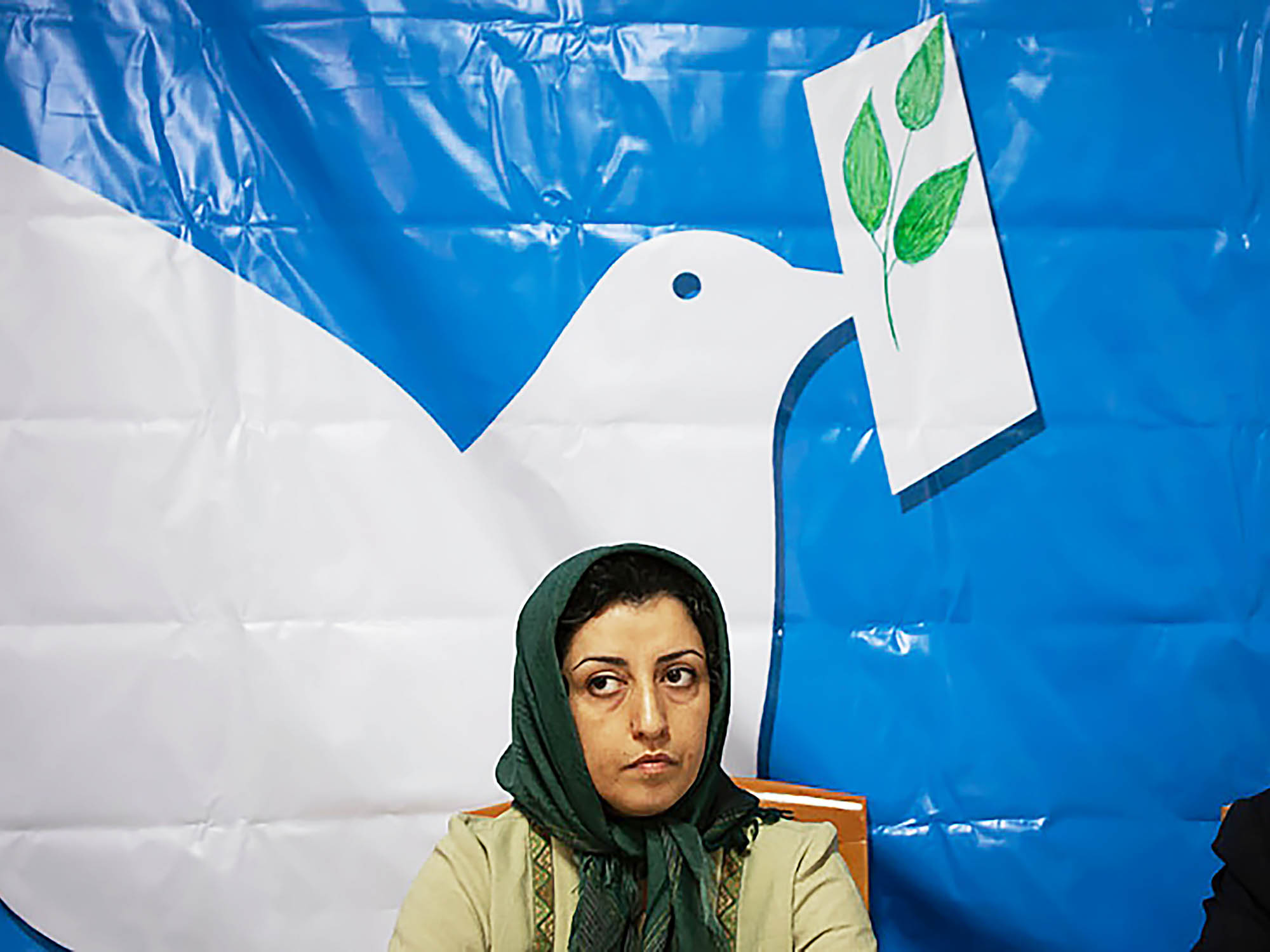




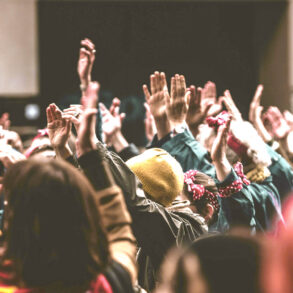
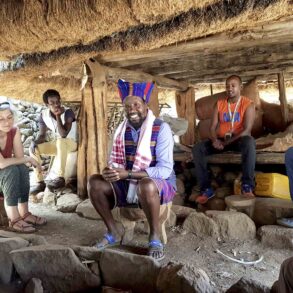
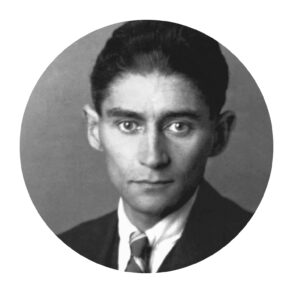

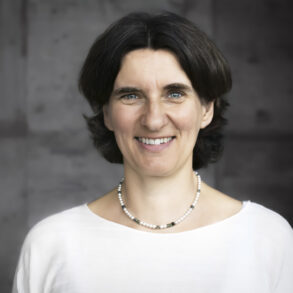

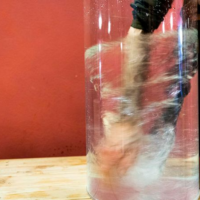

Meaningful contribution.
Each one of us practicing being clear and orientated to our real nature are contributing to the seeding of a better future. We don’t need to be in a physical prison for this. We need to, in freedom, feed our spiritual capcities with the strength that they need to be able to orientate ourselves to something better than we have today. Sometimes this challenge feels like being imprisoned.